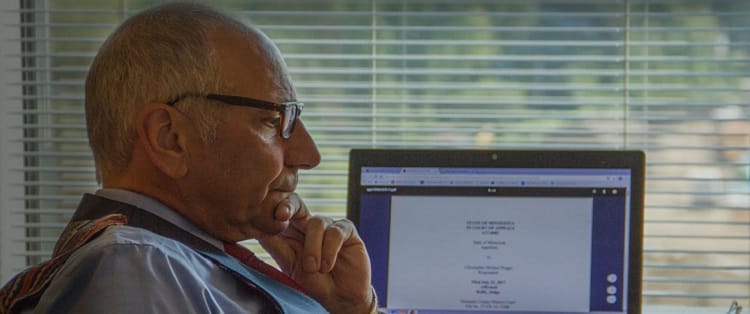Lawyers recently argued in the Court of Appeals, as well as the Third District, that a man whose conviction was downgraded to a “misdemeanor” after he completed probation should be eligible to have his record expunged based on Minnesota’s Second Chance Law. They lost in both lower courts. The case was then put before the Minnesota Supreme Court which upheld the lower courts’ decision that the Second Chance Law did not apply, albeit by a narrow margin.
As written, the Second Chance Law allows those convicted of 50 different low-level felonies to appeal to the court for expungement of their criminal records. The man whose case was recently brought before the Supreme Court was initially convicted of aiding and abetting during a burglary, a felony, but received a stay of imposition. That meant that once he completed probation his conviction would revert to a misdemeanor, a lesser charge eligible for expungement. He successfully satisfied all the conditions of his probation and his conviction was indeed lowered to a misdemeanor.
When he sought expungement of the conviction, the lower courts ruled against his eligibility. His lawyers then appealed to the Supreme Court arguing that the Second Chance Law applied in his case. A slight majority of Supreme Court justices said that because the man was initially convicted of a felony not listed among the 50 specified in the Second Chance Law, he was not eligible for expungement. However, due to proscribed waiting periods the man’s “felony” was technically and officially a “misdemeanor” when he sought expungement.
In this case the Supreme Court majority interpreted the Second Chance Law as applicable at the moment of conviction. The minority interpreted the Second Chance Law as applicable at the time of request for eligibility of expungement. Therein lies the issue; the Second Chance Law does not explicitly designate the timing of its application. Although the minority Supreme Court opinion in this case urged the legislature to make the Second Chance Law more explicit, it is unclear if or when that will happen. Accordingly, eligibility for expungement still highly depends on the specific case, each judge’s interpretation of the Second Chance Law, and the lawyers involved. If you need expungement, be sure to seek help from an attorney who has knowledge and experience regarding the Second Chance Law.
